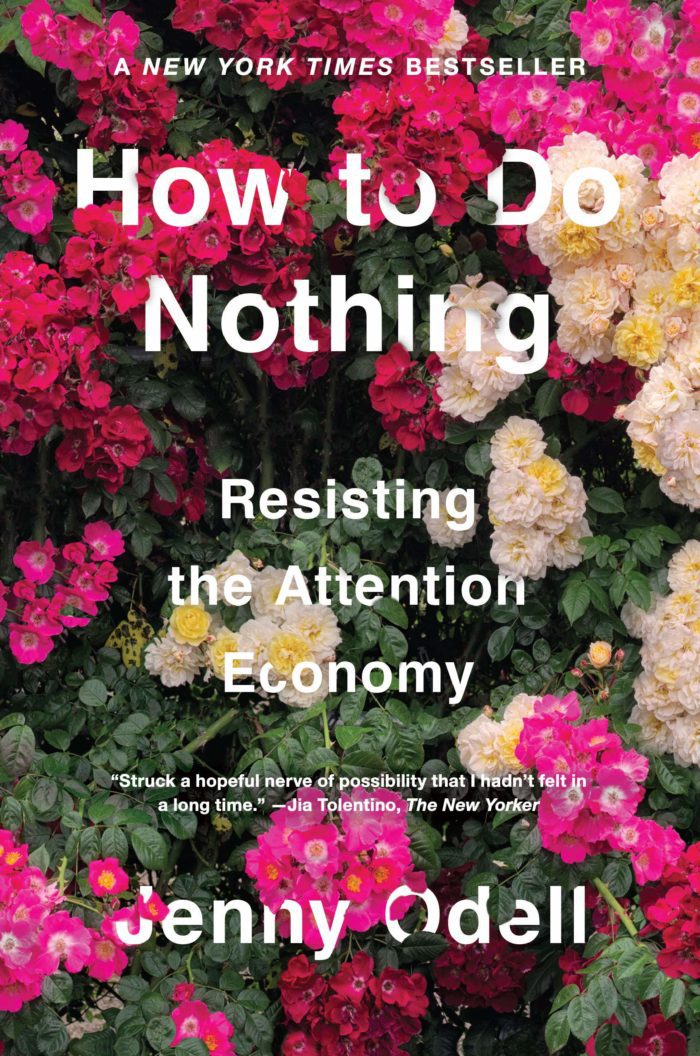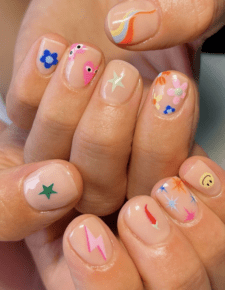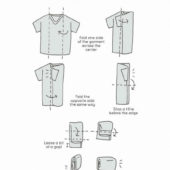
I wouldn’t say that envy is one of my biggest vices. But whenever the concept of “unplugging” comes up, I’m envious of those who are capable. The internet and social media are a big part of my life. I do everything I can to live in the present moment and resist the urge to check my phone when I’m around others, but sometimes it gets the best of me.
There’s a certain amount of social media I feel like is required by the nature of my work, but I’m certainly guilty of just bouncing around from app to app refreshing in moments of boredom or, worse even, out of habit: I realized the other day that I was opening Instagram again after having just closed it moments earlier… out of habit!
I’ve set those little alarms that tell me when I’ve reached an hour on Instagram and feel virtuous when it actually makes a difference. Then I get a notice about my average daily screen time and feel like I need to seek help!
A fascinating study I heard discussed on NPR once described the attraction of our devices when our brains lack the proper physical engagement: “In 11 studies, we found that participants typically did not enjoy spending 6 to 15 minutes in a room by themselves with nothing to do but think, that they enjoyed doing mundane external activities much more, and that many preferred to administer electric shocks to themselves instead of being left alone with their thoughts. Most people seem to prefer to be doing something rather than nothing, even if that something is negative.”

More recently, in How to Do Nothing, Jenny Odell writes about our “attention as the most precious—and overdrawn—resource we have.” I haven’t read her book yet—have you? thoughts?—but I’ve added it to my must-list. (Obama told me to.)
So what’s the problem? is it boredom? curiosity?
In “The Useless Agony of Going Offline,” an old New Yorker article about a man who started the year off with a three-day tech break, the author touches on both:
I was less harried, I suppose, but I was also far less informed, and not as advanced in my understanding of all sorts of things that interested me. […] I’m not sure that I used my time any “better” than I normally would have during that span. I just used it differently, and found myself frequently bored as a result.”
When I lament my attachment to my phone, I realize it’s its convenience that I both love and loathe, in particular for how it appears. For example, I love that Aron can text me about picking up dinner on the way home, but I loathe that it makes me pull it out of my pocket in front of the kids who can’t tell whether I’m looking at social media, checking the weather, thinking of taking a picture, reading the newspaper, looking up directions, or playing a game. I was telling a friend that I’m actually a fan of the old-school call now and then, simply because it’s so clear why you’re on your phone if you’re talking into it. And of course I’m glad I can read the news while in line at DMV but wouldn’t it be nice for the kids to see us passing around sections of the paper on some day other than Sunday?
And none of this even gets at all the issues with social sharing or with the spread of information and politics.
Some years ago, when I discussed a similar topic with you guys, some of you made some very interesting comments which I’ve added below.
“I walk an hour round trip to work every day and people are always surprised to hear that I don’t listen to any music while I walk. I really like having that time to think in the morning and appreciate my route in the evening.”
“I’m forever telling [my husband] to put the phone down and be in the moment. I realize that waiting for the train or in line is incredibly boring. But your brain needs to be bored so that it can process information, connect ideas, reflect. It’s tremendously important.”
“I’ve done this a few times before, but mostly gone offline for 1-4 weeks. (meaning no IG, Pinterest, blogs, etc). What’s funny is that I actually get annoyed at my husband for reading the paper on his phone (like he does every day), instead of ‘spending time with me,’ even though if I wasn’t on my self-imposed social media ban, I’d be doing exactly the same thing: spending time on my phone. And what I’ve found is that I maybe use my phone less one day or two after being on a break, but I fall into the checking-my-phone-even-though-I-just-checked-it pretty soon after. I’m still undecided on whether I love those breaks or not, but for now I haven’t given up completely.”
“My husband and I have been talking about the fact that our kids don’t know what we are doing on phones and it bothers us. In fact, we have just started subscribing to the print version of the NY Times again (after a many year hiatus) because we want our children to be able to see the newspaper and to look at it, something they aren’t going to do if it is on our phones. Our children are young – 3,5, and 8 – so they aren’t exactly reading it, but they look at the pictures and ask lots of questions. It has led to some interesting discussion! That said, I am not planning on giving up my smart phone anytime soon.”
“I have a rule that I don’t take my phone out during outings with friends or family – I make sure I give them my full attention. There’s nothing more disheartening then having a conversation with friend/family and looking over to see they are engrossed in their phone. I also try to stay disconnected in the mornings before work (since I work in social media), and at night.”
How do you deal with what I imagine many of us face: a love/hate relationship with our smartphones? Any tips? And do you try to moderate use, completely unplug at times, or just accept that this is how today’s day and age work?
P.S. More Thinking About posts: The Nod and The Tyranny of Email






































3 Comments